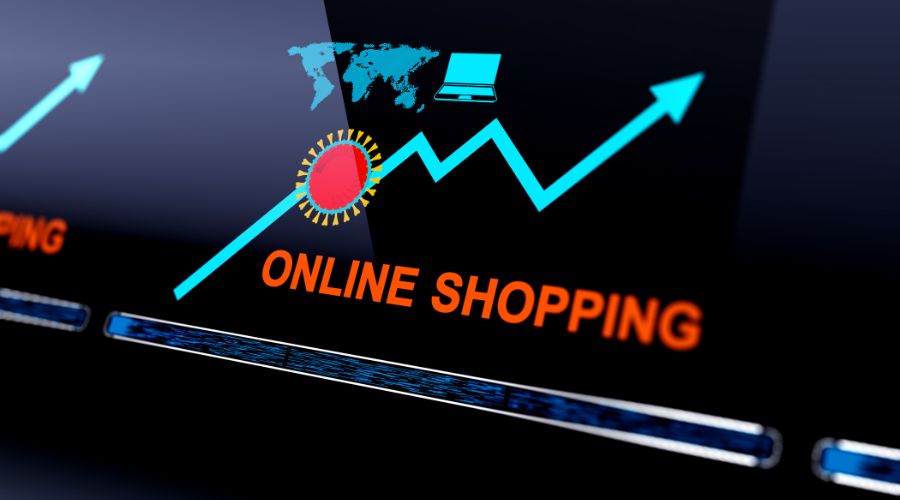As e-commerce continues to evolve, businesses must stay ahead of the curve to thrive in the competitive online marketplace. In 2024, harnessing the power of the best marketing channels will be crucial for e-commerce success. From optimizing search engine visibility to leveraging the potential of social media and email marketing, this comprehensive guide will explore the top strategies that will help e-commerce retailers maximize their reach, engagement, and sales in the year ahead.
Whether you’re a seasoned online retailer or just starting your e-commerce journey, understanding the latest trends and effective marketing tactics will be essential to ensuring your business stands out in a crowded digital landscape. By adopting a multi-channel approach and staying agile in your marketing efforts, you can position your online store for growth and success in the rapidly changing e-commerce landscape of 2024.
Key Takeaways on best marketing channels for e-commerce
- Discover the most effective marketing channels for e-commerce businesses in 2024
- Explore strategies to optimize search engine visibility and drive targeted traffic to your online store
- Learn how to leverage social media platforms and email marketing to engage with your target audience
- Understand the role of pay-per-click advertising, influencer marketing, and content marketing in your e-commerce strategy
- Gain insights into the importance of mobile optimization and video marketing for e-commerce success

The Evolution of E-commerce Marketing in 2024
As the e-commerce landscape continues to evolve, the strategies and tactics used by online retailers are also undergoing significant transformations. In 2024, the e-commerce marketing strategies and digital marketing for online stores are poised to experience a dynamic shift, reflecting the changing market dynamics and consumer preferences.
Key Market Changes and Trends
The e-commerce market is witnessing several key changes and emerging trends that are shaping the future of online marketing. These include the rise of social commerce, the increased emphasis on personalization, and the growing importance of mobile-first optimization. Brands are leveraging these trends to create more engaging and tailored experiences for their customers, ultimately driving conversions and loyalty.
Impact of AI and Automation
The integration of artificial intelligence (AI) and automation is revolutionizing the way e-commerce businesses approach marketing. From personalized product recommendations to automated email campaigns, these technologies are enabling online retailers to streamline their marketing efforts and deliver more personalized and efficient experiences to their customers. By harnessing the power of AI and automation, e-commerce brands can optimize their marketing strategies and gain a competitive edge in the rapidly evolving digital landscape.
New Consumer Behavior Patterns
- Increased focus on sustainability and ethical consumption
- Growing demand for interactive and immersive shopping experiences
- Rising preference for seamless cross-channel experiences
- Heightened importance of social proof and user-generated content
To effectively navigate these changes, e-commerce businesses must adapt their e-commerce marketing strategies and digital marketing for online stores to align with the evolving consumer behavior patterns. By understanding and anticipating these shifts, online retailers can position themselves for success in the dynamic e-commerce landscape of 2024.
Best Marketing Channels for E-commerce: A Comprehensive Overview
In the dynamic world of e-commerce, the right marketing channels can make all the difference in driving sales and customer acquisition. From tried-and-true strategies to emerging trends, let’s explore the best marketing channels for e-commerce businesses in 2024.
Search Engine Optimization (SEO) remains a crucial component, enabling online stores to rank higher in search results and attract organic traffic. Implementing effective best marketing channels for e-commerce strategies can significantly boost visibility and drive consistent sales.
Social media platforms have evolved into powerful marketing tools, allowing e-commerce businesses to engage with their target audience, build brand loyalty, and showcase their products through visually appealing content. Leveraging the right effective online advertising tactics on platforms like Instagram, TikTok, and Facebook can yield impressive results.
Email marketing continues to be a highly effective channel, enabling e-commerce businesses to personalize their outreach, nurture customer relationships, and promote their offerings. By employing strategic list-building techniques and personalization strategies, online stores can create compelling email campaigns that drive conversions.
Influencer marketing has become a game-changer, as e-commerce businesses can partner with relevant influencers to reach new audiences, build trust, and authentically showcase their products. Carefully selecting the right influencers and measuring the campaign’s impact can lead to significant returns.
As consumers increasingly rely on mobile devices, e-commerce businesses must prioritize mobile-first optimization and app-based strategies to deliver seamless shopping experiences. Leveraging push notifications, in-app marketing, and mobile-friendly content can be highly effective in driving engagement and sales.
By understanding the strengths and nuances of these best marketing channels for e-commerce, e-commerce businesses can develop a well-rounded marketing strategy that optimizes their online presence, engages their target audience, and drives sustainable growth.
Search Engine Optimization (SEO) for Online Stores
As the digital landscape continues to evolve, search engine optimization (SEO) has become increasingly crucial for e-commerce businesses. By optimizing your online store for search engines, you can improve your visibility, attract more qualified traffic, and ultimately drive sales. This section delves into the essential aspects of SEO for e-commerce, covering technical considerations, content optimization strategies, and the importance of local SEO.
Technical SEO Essentials
Ensuring your e-commerce website is technically sound is the foundation for successful SEO. This includes elements such as website speed, mobile-friendliness, and a well-structured URL structure. By addressing these technical aspects, you can enhance your site’s crawlability and indexability, making it more accessible to search engines.
Content Optimization Strategies
Content is king when it comes to search engine optimization for e-commerce. Developing a strategic content plan that aligns with your target audience’s search intent can significantly improve your online visibility. This may involve optimizing product descriptions, creating informative blog posts, and leveraging visual content like images and videos.
Local SEO for E-commerce
For e-commerce businesses with a physical presence, such as brick-and-mortar stores or local pickup options, optimizing for local SEO is crucial. This includes claiming and optimizing your Google Business Profile, generating positive customer reviews, and ensuring your NAP (name, address, and phone number) information is consistent across all online listings.
| SEO Tactic | Description | Potential Impact |
|---|---|---|
| Technical SEO | Optimizing website speed, mobile-friendliness, and URL structure | Improved crawlability and indexability, leading to better search visibility |
| Content Optimization | Optimizing product descriptions, creating informative content, and leveraging visual media | Enhanced user experience and increased engagement, boosting search rankings |
| Local SEO | Optimizing Google Business Profile, generating reviews, and maintaining consistent NAP information | Improved local search visibility and increased foot traffic to physical locations |
By implementing a comprehensive search engine optimization (SEO) strategy for your e-commerce website, you can improve your online presence, attract more qualified traffic, and ultimately drive conversions. Investing in technical SEO, content optimization, and local SEO can be a game-changer for your content marketing for e-commerce websites.
Social Media Marketing Platforms and Strategies
In the ever-evolving landscape of digital marketing for online stores, social media has emerged as a powerful tool for e-commerce businesses to engage with their customers, drive traffic, and boost sales. As we look ahead to 2024, savvy social media marketing for e-commerce strategies will be essential for success.
To maximize the impact of your social media efforts, it’s crucial to identify the most effective platforms for your target audience. Popular channels like Instagram, Facebook, and TikTok offer unique opportunities to showcase your products, build brand awareness, and foster meaningful connections with potential customers.
- Instagram: Leverage the visual appeal of this platform to showcase your products in an aesthetically pleasing manner, using captivating imagery and short-form video content to capture the attention of your audience.
- Facebook: Utilize the vast user base and targeted advertising capabilities of Facebook to reach a wider audience and drive traffic to your online store.
- TikTok: Tap into the growing influence of this platform, particularly among younger demographics, to create engaging, trend-driven content that resonates with your target market.
Crafting a cohesive social media marketing for e-commerce strategy is essential for driving results. This may include a mix of organic content, paid advertising, influencer collaborations, and interactive campaigns that foster a sense of community and loyalty among your followers.
By embracing the power of social media marketing for e-commerce, e-commerce businesses can effectively reach and engage with their target audience, ultimately driving increased traffic, sales, and long-term customer loyalty in the year 2024 and beyond.
Email Marketing Campaigns and Automation
In the dynamic world of e-commerce, email marketing stands out as a powerful tool for reaching and engaging with customers. As businesses strive to cut through the digital noise, crafting captivating email marketing campaigns and leveraging automation has become essential for success.
List Building Techniques
Building a robust email list is the foundation of effective email marketing. Savvy e-commerce businesses employ a range of strategies to grow their subscriber base, such as offering gated content, running contests and promotions, and optimizing website sign-up forms. By providing value-driven incentives, they can entice customers to willingly share their email addresses and opt-in to receive updates and offers.
Personalization Strategies
In the age of personalization, email marketing campaigns that resonate with individual customers are far more likely to drive engagement and sales. E-commerce brands can leverage customer data, browsing history, and purchase behavior to craft tailored messages that speak directly to the needs and interests of each subscriber. From personalized product recommendations to targeted upsell opportunities, these personalization strategies can create a more cohesive and rewarding customer experience.
Marketing Automation Tools
To streamline and scale their email marketing efforts, e-commerce businesses are increasingly turning to marketing automation tools. These powerful platforms automate repetitive tasks, such as sending welcome messages, abandoned cart reminders, and triggered campaigns based on customer actions. By integrating email marketing with other e-commerce data and workflows, automation can enhance efficiency, improve personalization, and free up valuable time for strategic planning.
As the e-commerce landscape continues to evolve, mastering email marketing campaigns and automation will be a critical component of successful e-commerce marketing strategies. By building engaged subscriber lists, personalizing content, and leveraging automation, e-commerce businesses can cultivate meaningful customer relationships and drive sustainable growth.
Pay-Per-Click Advertising and Display Networks
In the ever-evolving landscape of e-commerce marketing, pay-per-click (PPC) advertising and display networks have become essential tools for driving targeted traffic and boosting online sales. These powerful platforms offer e-commerce businesses the opportunity to reach a wider audience and optimize their marketing efforts for maximum impact.
PPC advertising, with its ability to precisely target potential customers based on their search queries, interests, and behaviors, has become a cornerstone of effective online advertising strategies. By carefully crafting compelling ad copy and leveraging advanced targeting capabilities, e-commerce marketers can ensure their message reaches the right audience at the right time, ultimately driving higher conversion rates and a stronger return on investment (ROI).
Complementing PPC, display networks provide e-commerce businesses with the ability to showcase their products and services through visually captivating ad placements across a vast network of websites and platforms. By strategically placing eye-catching ads that resonate with their target audience, e-commerce brands can enhance their brand awareness, attract new customers, and drive repeat business.
To maximize the impact of PPC and display network advertising, e-commerce marketers must carefully monitor campaign performance, analyze key metrics, and continually optimize their strategies. This data-driven approach, combined with a deep understanding of consumer behavior and market trends, allows businesses to refine their targeting, messaging, and bidding strategies, ensuring their marketing efforts remain effective and profitable. Search engine optimization (SEO) for e-commercePay-per-click (PPC) advertising has become a cornerstone in the digital marketing strategies of e-commerce businesses. By utilizing display networks, brands can showcase their products to a vast audience, ensuring that their ads are visible to potential customers across various online platforms. This model not only enhances visibility but also allows for precise targeting based on user behavior, demographics, and preferences. As a result, businesses can tailor their messaging to resonate with specific audiences, increasing the likelihood of conversions. Coupled with search engine optimization (SEO) for e-commerce, PPC advertising can amplify overall online presence, creating a comprehensive approach that funnels traffic from multiple sources.
The beauty of PPC advertising lies in its flexibility and control over budget allocation. Advertisers can set daily or monthly spending limits, making it an attractive option for both small and large businesses. With clear metrics and analytics, e-commerce brands can assess the effectiveness of their campaigns in real time. This ensures that strategies can be adjusted quickly based on performance data, allowing for continuous refinement of targeting and messaging to optimize outcomes. Furthermore, leveraging both PPC and SEO creates a synergistic effect, as high-quality landing pages optimized for search engines can also enhance the performance of paid ads.
In a world where competition for online attention is fierce, utilizing a mix of PPC advertising for e-commerce and robust SEO strategies can significantly enhance a brand’s visibility. When individuals search for products or services, a strategic combination of organic search results and targeted display ads can dominate user attention, leading to higher click-through rates and enhanced brand recall. As e-commerce continues to evolve, businesses must embrace the opportunities presented by digital advertising, recognizing that an integrated approach can yield greater success in achieving marketing goals.
Moreover, as consumer behavior shifts towards online shopping, the importance of adapting to these changes cannot be overstated. Businesses that have effectively implemented PPC campaigns alongside a strong SEO foundation stand to gain a competitive edge. It’s essential to stay updated with trends and algorithms that influence both PPC and SEO, ensuring that marketing efforts are not just reactive but also proactive in capturing the increasingly discerning e-commerce audience. In this dynamic landscape, flexibility and data-driven decision-making will play critical roles in how businesses evolve and thrive.
| Platform | Key Benefits | Targeting Options |
|---|---|---|
| Google Ads | Extensive reach, advanced targeting, and performance tracking | Keywords, demographics, interests, location, device, and more |
| Facebook Ads | Highly targeted ads, visual appeal, and integration with user data | Interests, behaviors, demographics, location, and custom audiences |
| Amazon Advertising | Placement on the world’s largest e-commerce platform, product-specific targeting | Keywords, categories, audience segments, and product targeting |
By leveraging the power of PPC advertising and display networks, e-commerce businesses can effectively reach and engage their target audience, driving increased traffic, conversions, and long-term business growth.

Influencer Marketing and Brand Collaborations
As the e-commerce landscape continues to evolve, influencer marketing for online businesses has emerged as a crucial component of e-commerce marketing strategies. Brands are recognizing the immense value of collaborating with influential personalities who have cultivated a loyal following on various social media platforms.
Choosing the Right Influencers
The key to successful influencer marketing lies in identifying the right influencers to partner with. Brands must carefully evaluate factors such as audience demographics, engagement rates, content quality, and alignment with their brand values. By aligning with influencers who resonate with their target customer base, e-commerce businesses can tap into authentic and influential voices that can drive meaningful conversions.
Campaign Measurement Metrics
Tracking the performance of influencer marketing campaigns is essential for optimizing future efforts. Relevant metrics to measure may include reach, engagement, click-through rates, conversion rates, and return on investment (ROI). By closely monitoring these metrics, e-commerce businesses can gain valuable insights into the effectiveness of their influencer collaborations and make data-driven decisions to refine their strategies.
ROI Optimization
Maximizing the return on investment (ROI) is a crucial aspect of influencer marketing for online businesses. E-commerce brands should carefully analyze the cost-effectiveness of their influencer partnerships, ensuring that the investment aligns with the generated revenue and customer acquisition. Through constant optimization and testing, businesses can refine their influencer marketing approach to achieve optimal ROI and drive sustainable growth.
By leveraging the power of influencer marketing for online businesses, e-commerce brands can amplify their visibility, build trust, and drive conversions in the ever-evolving digital landscape. By carefully selecting influencers, tracking performance metrics, and optimizing ROI, businesses can unlock the full potential of this influential marketing strategy.
Content Marketing and Brand Storytelling
In the dynamic world of e-commerce, success hinges not only on the quality of your products but also on the strength of your digital presence. The art of content marketing and brand storytelling has emerged as a powerful ally for online retailers, helping them to build trust, enhance SEO, and drive conversions.
Content marketing for e-commerce websites goes beyond simply showcasing your products. It’s about crafting engaging narratives that resonate with your target audience and positioning your brand as a trusted authority in your industry. By creating informative, entertaining, and visually captivating content, you can attract and retain customers, fostering a deeper connection that extends far beyond a single transaction.
The importance of digital marketing for online stores cannot be overstated. Search engine optimization (SEO) is a critical component of any successful e-commerce strategy, and content marketing can be a potent tool in your SEO arsenal. Optimized, keyword-rich content not only helps your website rank higher in search results but also provides valuable information that addresses your customers’ pain points and queries.
Storytelling for E-commerce Success
Effective brand storytelling is the foundation of successful content marketing. By weaving a compelling narrative around your products, services, and company values, you can differentiate your online store from the competition and create a lasting emotional connection with your audience. This could include:
- Highlighting the unique origins or production process of your products
- Sharing the personal stories of your founders or employees
- Showcasing how your products have positively impacted the lives of your customers
Remember, content marketing for e-commerce is not just about selling – it’s about building trust, fostering loyalty, and positioning your brand as a trusted partner in your customers’ lives. By crafting a cohesive, compelling brand story, you can unlock the full potential of digital marketing for your online store.
| Content Marketing Tactics | Benefits for E-commerce |
|---|---|
| Informative blog posts | Improved SEO, increased brand awareness, customer education |
| Product videos and tutorials | Enhanced user experience, increased conversions, reduced returns |
| Social media storytelling | Stronger brand personality, improved customer engagement, increased referrals |
| Email newsletters | Improved customer retention, personalized product recommendations, upsell opportunities |
Mobile Marketing and App-Based Strategies
In the dynamic world of digital marketing for online stores, harnessing the power of mobile platforms is crucial for effective advertising and customer engagement. As consumer behavior continues to shift towards mobile-first experiences, e-commerce brands must adapt their strategies to thrive in this evolving landscape.
Mobile-First Optimization
Optimizing your online store for mobile devices is no longer a mere option – it’s a necessity. Ensure your website is responsive, with a seamless user interface and lightning-fast loading times to provide a delightful experience for your mobile customers. Leverage mobile-specific features, such as touch-friendly navigation and streamlined checkout processes, to drive higher conversions.
App Marketing Techniques
Developing a branded mobile application can be a strategic move for e-commerce businesses. By leveraging app-based marketing, you can create deeper connections with your customers and deliver personalized, on-the-go experiences. Utilize in-app features like push notifications, loyalty programs, and targeted offers to drive user engagement and foster brand loyalty.
Push Notification Strategies
- Personalize push notifications based on user behavior and preferences to enhance relevance.
- Leverage push notifications for time-sensitive promotions, new product launches, and abandoned cart reminders to drive sales.
- Experiment with different messaging, timing, and frequency to optimize the effectiveness of your push notification strategy.
By implementing a comprehensive mobile marketing plan that incorporates mobile-first optimization, app-based strategies, and targeted push notifications, e-commerce businesses can stay ahead of the curve and deliver a seamless, engaging digital experience for their customers. Embracing these mobile-centric tactics can unlock new opportunities for growth and success in the ever-evolving world of digital marketing for online stores and effective online advertising.
Video Marketing and Live Shopping
In the ever-evolving world of e-commerce, video marketing, and live shopping experiences have emerged as powerful tools for online retailers to captivate their audience and drive sales. As consumer preferences shift towards more engaging and immersive content, businesses must adapt and leverage these innovative strategies to stay ahead of the competition.
Creating compelling video content can be a game-changer for e-commerce brands, allowing them to showcase their products, share brand stories, and build genuine connections with their customers. From product demonstrations and tutorials to influencer collaborations and behind-the-scenes glimpses, strategic video marketing can enhance brand awareness, increase customer engagement, and ultimately, boost conversions.
Furthermore, the rise of live shopping experiences has revolutionized the way consumers interact with online stores. By blending the immediacy of live streaming with the convenience of e-commerce, businesses can create interactive shopping experiences that foster a sense of community, offer real-time product information, and drive impulse purchases. Leveraging the power of live shopping can be a powerful addition to any e-commerce marketing strategy, helping brands to differentiate themselves, build trust, and drive sustainable growth. Pay-per-click (PPC) advertising for e-commerce marketing and live shopping has become an indispensable tool for the modern e-commerce landscape, allowing brands to engage consumers more dynamically. With the proliferation of mobile devices and high-speed internet, video content has morphed from a novelty to a necessity. Videos can showcase products in action, provide in-depth demonstrations, and offer substantial value to consumers through informative content. The interactive element of live shopping, where consumers can purchase products in real time during a live broadcast, further enhances the shopping experience. This innovative approach not only captures attention but also builds trust as customers can see products in real-time and ask questions directly to presenters.
Incorporating video marketing into e-commerce also ties into other essential digital marketing strategies, particularly search engine optimization (SEO) for e-commerce. Engaging video content can improve a brand’s search visibility, as search engines increasingly prioritize sites that feature multimedia content. Videos can be optimized with relevant keywords, descriptions, and tags, making them more likely to appear in search results. When combined with targeted SEO strategies, video marketing can significantly amplify a brand’s reach and engagement on various platforms, solidifying its position within a crowded marketplace. Search engine optimization (SEO) for e-commerce marketing has emerged as a vital tool for brands looking to enhance their online presence and engage with consumers more effectively. With the rise of platforms like Instagram, TikTok, and YouTube, video content has become a preferred format for countless users, making it essential for brands to incorporate it into their marketing strategies. By utilizing video marketing, businesses can not only showcase their products dynamically and engagingly, but they can also build emotional connections with consumers, telling their brand stories in ways that resonate with their audience. The versatility of videos allows brands to produce everything from product demonstrations to live Q&A sessions, catering to diverse audience preferences.
Live shopping is taking this trend a step further by merging entertainment with e-commerce. This innovative approach combines live streaming with the ability for viewers to purchase products in real-time, creating an interactive shopping experience that captures attention like never before. Live shopping events can drive urgency, as consumers feel compelled to make immediate purchasing decisions. As brands engage with their audience during these events, they not only boost conversions but also foster a community around their products. This form of digital selling reflects a growing consumer preference for authenticity and genuine engagement, providing an opportunity for brands to stand out in a competitive market.
To maximize the impact of video marketing and live shopping, brands must pay close attention to their overall digital marketing strategy, particularly incorporating search engine optimization (SEO) for e-commerce. By optimizing their videos and live streams for search engines, businesses can significantly enhance visibility and reach. Leveraging keywords, descriptions, and tags can improve rankings, ensuring that content is discoverable by potential customers. Furthermore, integrating pay-per-click (PPC) advertising for e-commerce can complement these efforts, delivering targeted traffic that seamlessly funnels viewers into the live shopping experience.
As the digital landscape continues to evolve, the integration of video marketing and live shopping will not only help brands communicate their value proposition but also stimulate sales growth. By embracing these strategies, businesses can cultivate a loyal customer base while adapting to changing consumer behaviors in the shopping journey. The future of e-commerce lies in creating engaging and interactive experiences, and video marketing, especially when combined with live shopping, is at the forefront of this shift.
Furthermore, the integration of pay-per-click (PPC) advertising for e-commerce with video marketing creates a powerful synergy. Brands can use compelling video ads to capture attention on platforms like social media and search engines, driving traffic directly to their e-commerce sites. The ability to leverage analytics from these campaigns allows brands to fine-tune their marketing efforts, ensuring that they reach the right audience at the right time. By combining PPC with engaging video content, businesses can enhance their return on investment while directly connecting with potential customers.
Ultimately, video marketing and live shopping not only elevate the e-commerce experience but also create a more personalized connection between brands and consumers. As brands look to differentiate themselves, embracing these strategies can lead to increased customer loyalty and sustainable growth. In a rapidly evolving digital landscape, incorporating video content into broader marketing strategies is not just an option; it has become a crucial component for success in the e-commerce realm.
FAQ
What are the most effective marketing channels for e-commerce businesses in 2024?
The top marketing channels for e-commerce in 2024 include search engine optimization (SEO), social media marketing, email marketing, pay-per-click (PPC) advertising, influencer marketing, and content marketing. By adopting a multi-channel approach, e-commerce businesses can maximize their reach and sales in the competitive online marketplace.
How is e-commerce marketing evolving in 2024?
E-commerce marketing is evolving rapidly, with key changes and trends such as the increased use of AI and automation, shifting consumer behavior patterns, and the growing importance of personalization and omnichannel experiences. Businesses must adapt their strategies to stay ahead of the curve and meet the evolving needs of online shoppers.
What are the essential elements of effective search engine optimization (SEO) for e-commerce websites?
Crucial elements of SEO for e-commerce include technical optimizations, content optimization strategies, and local SEO tactics. Businesses must focus on improving site speed, implementing structured data, optimizing product pages, and ensuring their online store is easily discoverable in local search results.
How can e-commerce businesses leverage social media marketing effectively?
Successful social media marketing for e-commerce involves identifying the most relevant platforms for your target audience, creating engaging content, leveraging influencer partnerships, and using social commerce features to drive sales directly through social channels.
What are the best marketing channels for e-commerce space?
Effective email marketing for e-commerce includes building a robust subscriber list, personalizing content and offers, automating campaigns, and using data-driven insights to optimize performance. Businesses should also focus on list segmentation, abandoned cart recovery, and post-purchase nurturing to maximize the impact of their email marketing efforts.
How can e-commerce businesses effectively utilize pay-per-click (PPC) advertising?
To succeed with PPC advertising, e-commerce businesses should focus on keyword targeting, ad creative optimization, audience segmentation, and campaign performance tracking. By continuously refining their PPC strategy, they can drive qualified traffic, improve conversion rates, and generate a positive return on investment.
What are the best practices for influencer marketing in the e-commerce space?
Effective influencer marketing for e-commerce involves identifying the right influencers who align with your brand and target audience, crafting authentic and engaging campaigns, and measuring the impact on key metrics such as sales, website traffic, and brand awareness. Businesses should also focus on building long-term relationships with influencers to maximize the benefits of these collaborations.
How can e-commerce businesses leverage content marketing to drive growth?
Content marketing for e-commerce can include creating informative blog posts, product guides, videos, and social media content that educates, entertains, and engages the target audience. By developing a robust content strategy, e-commerce businesses can improve SEO, build brand trust, and ultimately drive more sales through the customer journey.
What are the key considerations for mobile marketing and app-based strategies in e-commerce?
Successful mobile marketing for e-commerce involves optimizing the website for mobile users, developing a mobile-friendly app, and implementing effective push notification strategies to re-engage customers. Businesses should also focus on creating a seamless, omnichannel shopping experience that caters to the evolving preferences of mobile-first consumers.
How can e-commerce businesses leverage video marketing and live shopping experiences?
Video marketing and live shopping are becoming increasingly important in the e-commerce space. Businesses should create engaging video content, such as product demonstrations, tutorials, and brand storytelling, to capture the attention of online shoppers. Live shopping experiences can also be leveraged to drive customer engagement, showcase products, and increase sales in real time.




